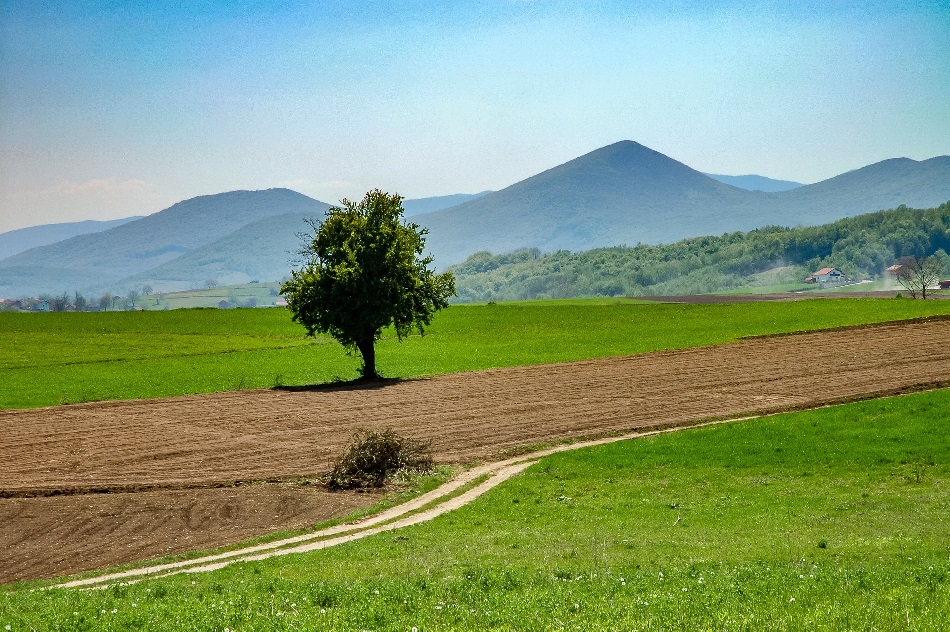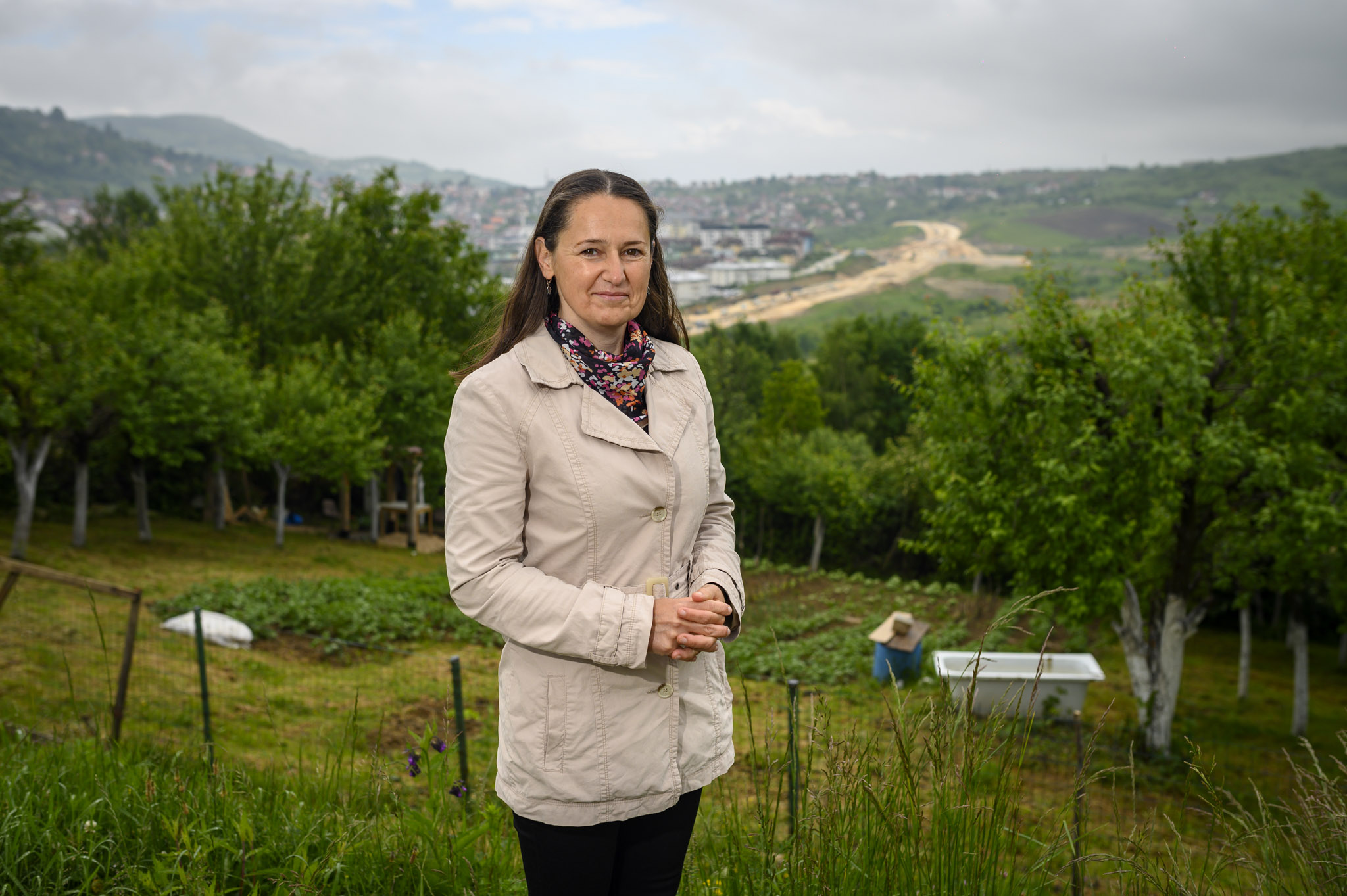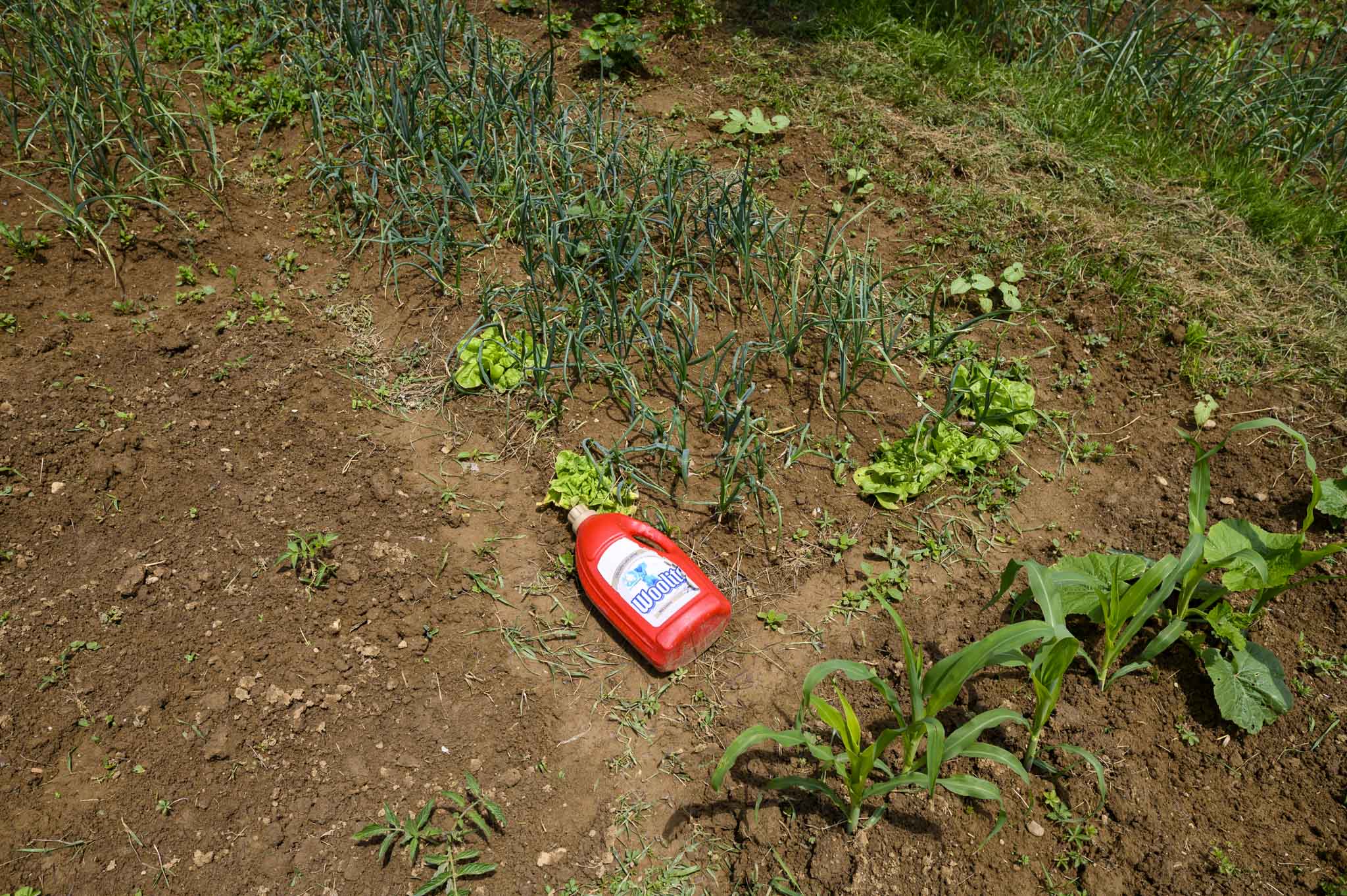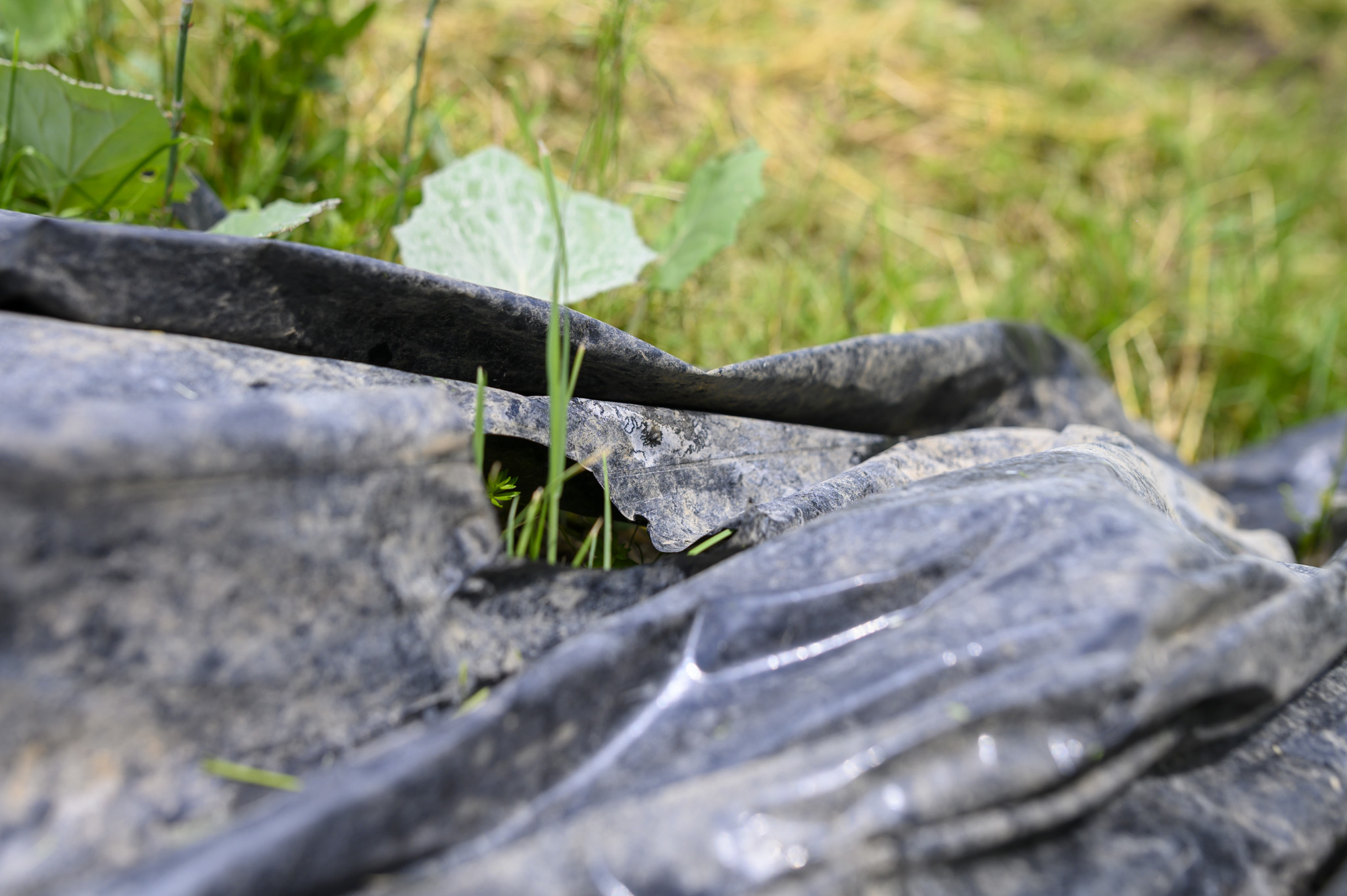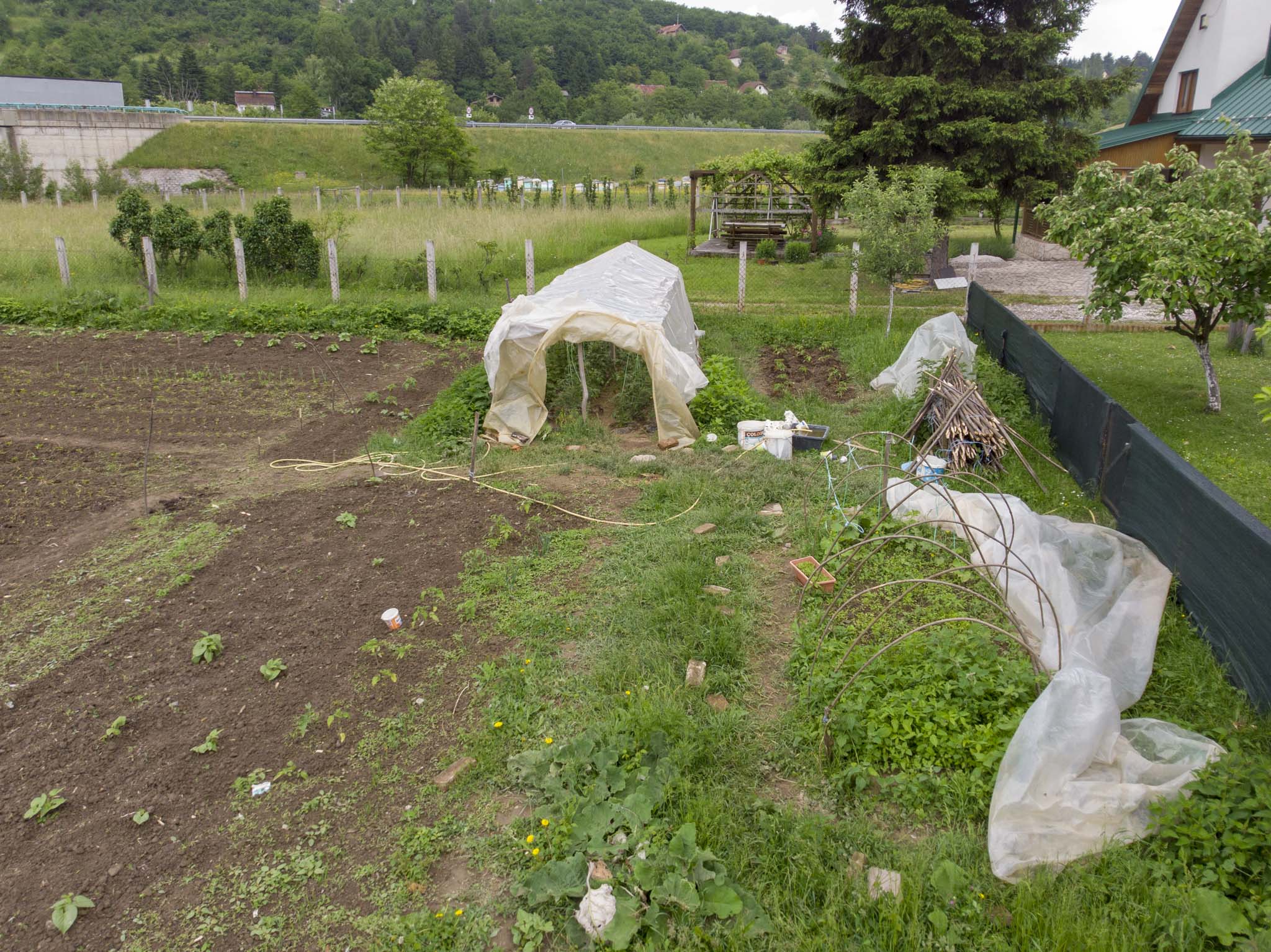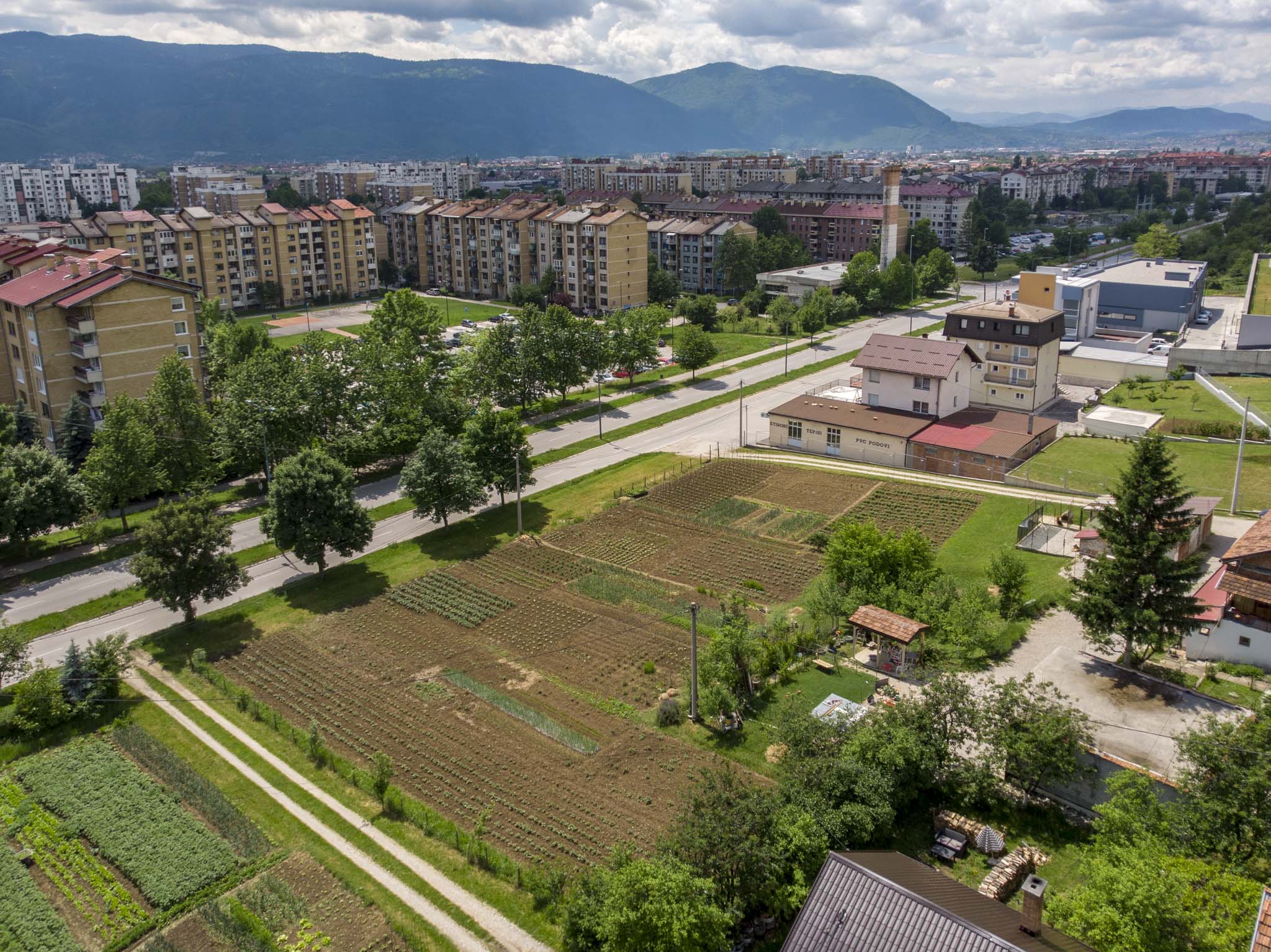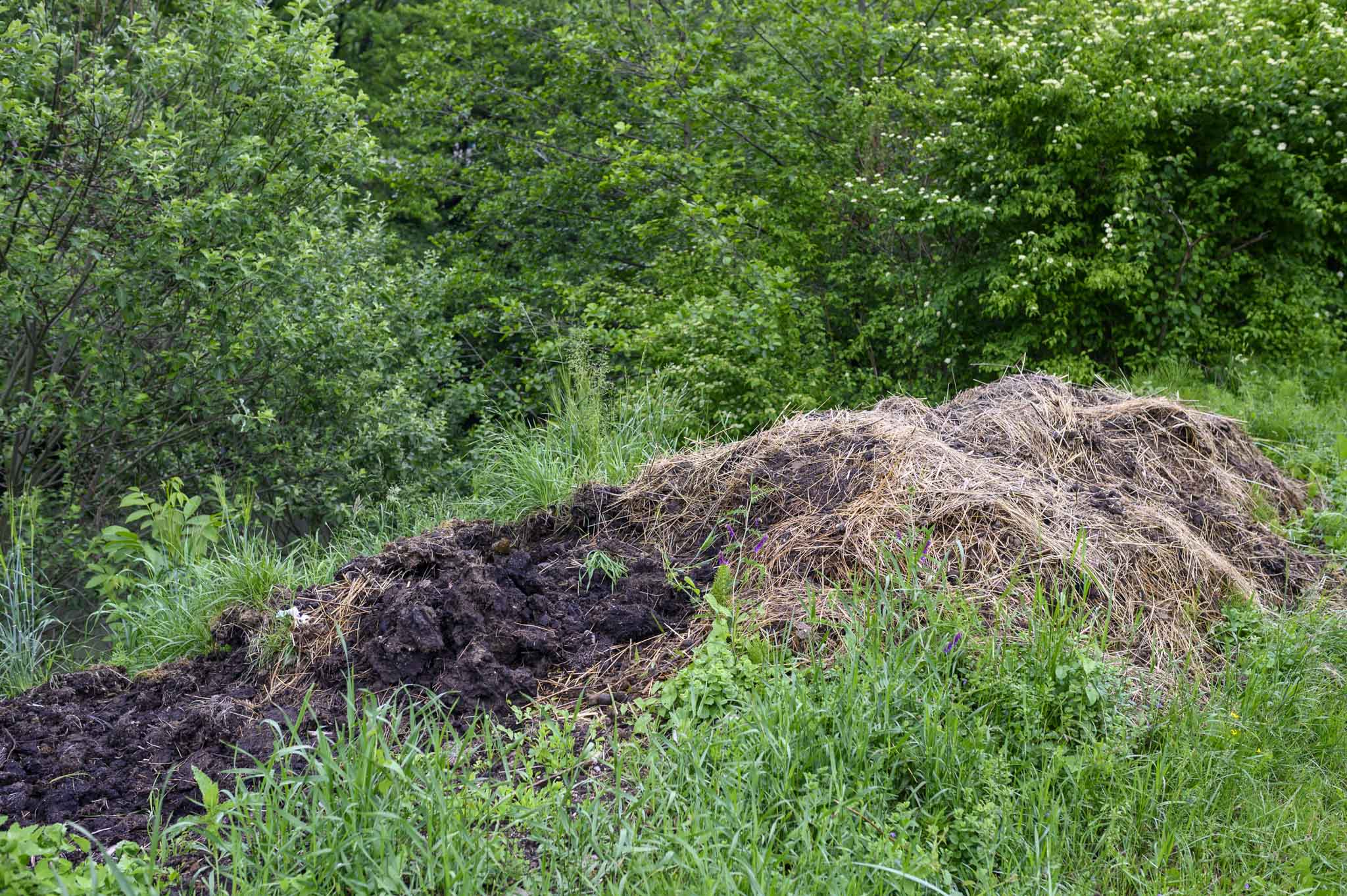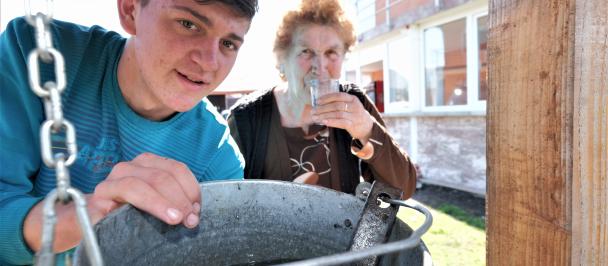--- Image caption ---
Agricultural production exhausts the vitality of soil and many years of tillage and cultivation of agricultural crops on it affect its quality, whereas its excessive use and use of harmful chemicals are particularly damaging, all of which reflect both on the food we eat and water we drink.
“Intensive agricultural production implies different forms of damaging the land, such as its compacting and destroying of its structure by heavy machinery as well as the application of huge quantities of chemicals and the loss of organic substances, which significantly contribute to the decrease of soil productivity for the cultivation of agricultural crops” – as stated by Melisa Ljuša, a land and soil expert and a Professor at the Faculty of Agriculture and Food of the University of Sarajevo.
“Except for partial researches, Bosnia and Herzegovina is missing a developed monitoring system, which would show what is the situation with residues of different chemicals,” as she further explained, “while only the rare agricultural producers make the necessary fertility control and analyses for harmful ingredients of organic and mineral origin.”
Melisa Ljuša, stručnjakinja za zemljište i profesorica na Poljoprivredno-prehrambenom fakultetu Univerziteta u Sarajevu
“At the start of any production, it is first necessary to get familiar with the features of the land where a certain agricultural crop is about to be cultivated. Requirements for the cultivation of a crop in terms of the land and other environmental requirements first must be well studied,” Ljuša explained, adding that many agricultural producers continue keeping the traditional approach and advice transferred from one generation to another, although new approaches and modern technologies are gradually being adopted and slowly changed.
“However, those who consider themselves to be serious producers do follow the situation on the market, hence, there is an increasing interest and need for training.”
Data on the land quality control are useful to agricultural producers for finding the responses to the questions related to the proper usage of organic and mineral fertilizers for feeding the cultivated crops, planning of cultivation, application of chemicals in the protection of pests. Also, such research and monitoring can point out towards the processes of land degradation due to excessive usage of certain chemicals in agriculture as well as secondary sources of contamination from industries, traffic, and such.
Degradation of soil
In BiH, different processes of degradation of arable agricultural soil are present, such as soil erosion and different forms of permanent losses and also of a decrease of its functions within the ecosystem. The most fatal form of soil degradation is his permanent loss from agriculture, as a consequence of constructing the infrastructure, industry and residential areas.
Intensive agriculture has caused disturbances in the environment at a global level, such as the occurrence of natural biotopes and landscaping elements, water contamination with nitrates and pesticides. Ljuša explained that the awareness of soil contamination with harmful substances has lately been all the more raised.
“The awareness and knowledge about the use of pesticides by agricultural producers have been continually improved, because getting educated is critical, not only for agricultural producers, but also for advisory services and salespeople. According to estimates, a relatively low level of mineral fertilizers is added on average to the arable soils in Bosnia and Herzegovina, about 200 kg/ha NPK NPK (nitrogen (N), phosphorous (P) and potassium (K)), while the rest is related to the manure (organic fertilizer) in the quantity of about 8 t/ha”, explained the Professor. From the point of view of consumption of mineral fertilizers, Bosnia and Herzegovina is at the end in the region, needless to mention the EU.
“Due to the lack of a soil quality control system, it is impossible to state from this point of view whether the soil has been degraded or contaminated. Still, it can be assumed that in the plain areas of Posavina, in the river valleys on alluvial soils and in the karst fields where intensive agricultural production is done, there is a significant input of contaminating substances into the soil, which can have negative consequences to the ecosystem. In order to maintain the soil in a sustainable manner, it is necessary to timely prevent the negative consequences of degradation.
“The requirements for the use of land for other purposes beyond the scope of its primary function, i.e. ecological and/or production of biomass for humans and animals, are requested on a daily basis. It is obvious that the construction is done on the highest quality agricultural land and that the losses of land are not small,” explained Ljuša, adding that the competent institutions have a primary role in the improvement of the situation in this area, only then to be followed by the individual producers.
“What should be the practice of our agricultural producers is the implementation of regular control of land, so as to obtain reliable data about the land condition, fertility and needs for its improvement. An increasing attention has been lately paid to the contamination of land with harmful substances,” she explained, adding that if we do not know what is the contents of the pollutants in the arable land, we can say that we do not know the quality of food that we consume either.
The Land Degradation Neutrality (LDN) is a globally ongoing initiative, the aim of which is to stop an active loss of health and good-quality land due to its degradation, which is something that the BiH has signed. This does not jeopardise further development, although each of the signatory countries is requested to plan and regularly report on the degradation procedures and measures, at which it must establish a balance between the degraded surfaces and surfaces to be renewed in the process of re-cultivation, rehabilitation or remediation in the same scope by the quantity and quality of the degraded land. In that case, the countries meeting these criteria would enable an approach to the global UN funds for investment into sustainable development and environmental protection.
Environmental protection
The natural resources of Bosnia and Hercegovina provide good background for working on agriculture, however, those potentials have not been used enough and, according to the assessments of the competent institutions, dealing with agriculture in BiH is a low-productivity business activity performed with poor technological equipment. This is additionally aggravated by the dependence of the domestic market on the import of almost all the raw materials necessary for the production of the seeds, protective assets and mineral fertilizers as well as the equipment and agricultural mechanisation.
Still, about one fifth of the working age population works in agriculture in BiH and quite often this is a business activity that runs for several generations in the family. Traditional approaches in agricultural production are changed and there are many producers, as Ljuša explained, that are interested in getting educated and trained in new and environmentally acceptable solutions.
Agriculture has been recognized as a significant factor of sustainability at the time of the pandemics, when the focus was put both on urban agriculture and food production for own needs using the environmental principles, recognizing the potential of small lots and indoor production.
Degradation of land threatens to make an influence on the global food production and it causes a decrease of productivity by 12 percent, which would mean an increase in prices by 30 percent until 2040. Degradation of land also negatively affects the availability of clean drinking water, poverty, food safety, migrations, gender rights, forest destruction, biodiversity and climate changes, whereas the researches have shown that 52 percent of agricultural land throughout the world has already been affected by degradation.
On the World Environment Day, which has been celebrated on 5 June ever since 1974, the significance of raising awareness about the consequences of exploitation and destruction of ecosystems, whose reconstruction would mean preventing, stopping and regressing of those trends – from exploitation to recovery of the Planet. Under the slogan #GenerationRestauration, the UN has celebrated the World Environment Day as a global mission to revitalise billions of hectares of forests, agricultural land, mountain tops and sea depths, which would mean, in the end, combating against negative consequences of climate changes.
Disposal of waste from agricultural activities
In addition to advice on improving the quality of land and treatment of crops, there is an open question of disposal of waste from agricultural activities, which often results in illegal waste disposal landfills and close to the rivers, meaning that in the end these get to the sources of drinking water, causing a danger from contamination.
What Bosnia and Herzegovina is missing are the places for adequate disposal and treatment of empty packaging waste containing the remains of chemicals.
“I strongly believe that the agricultural producers have accepted the modern approaches related to the treatment and processing of waste substances from agriculture, as this definitely is a problem for them as well, not only for the environment, in terms of what to do with such waste, how to store it, where to leave it,” stated Ljuša, adding that this problem consequently leads to the occurrence of micro-plastics in the land, which reflects on the products as well, but also on the contamination of underground waters.
In the coming period, the project financed by Sweden and implemented by the UNDP, will organise a specialised training for agricultural producers, institutions and other interested parties on the topic of proper testing and disposal of pesticide packaging. Improper treatment and disposal of this type of waste, through the existing practices, leads to unintentional release of the existing persistent organic pollutants (POPs) into the atmosphere.
Ljuša emphasised that it would take the necessary training and an adjusted approach in the treatment of manure, which is very important for agricultural production, but it can also be very harmful for the environment, particularly from the point of view of contamination of the surface and underground waters.

 Locations
Locations